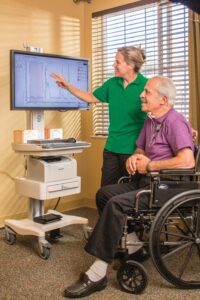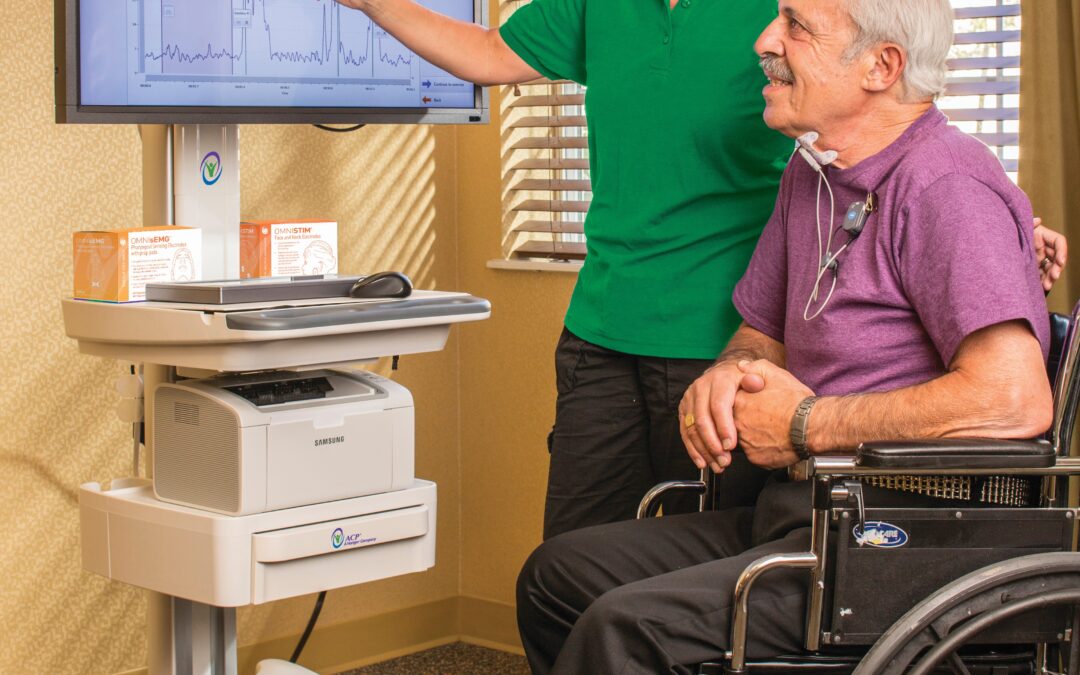
ProMedica patients are treated under the direction of a primary care physician with the input of specialists as required by the patient’s medical needs.
At a time when quality health care is top-of-mind, it is reassuring to know that health and well-being organizations like ProMedica are dedicating resources to the Lehigh Valley. The national firm, which acquired Manor Care in 2018, now operates seven skilled nursing centers spread across the communities of Easton, Bethlehem and Allentown, Pa.
“Our vast network provides access to physicians, hospitals and managed care experts to guide the manner in which we provide services,” noted Dawn Melanson, ProMedica’s East Coast director of post-acute strategy and care transitions. “These resources have been especially beneficial during the COVID-19 pandemic. ProMedica has infection control specialists on staff to work with our local facilities as well as ample stocks of important supplies such as PPE.”
The ProMedica network includes 13 hospitals, 965 health care providers, 180 outpatient sites and nine urgent care centers as well as its own ProMedica Health insurance plan and the ProMedica Health and Aging division. In addition to experienced professionals who drive innovation at the company, ProMedica offers the advantages of a not-for-profit structure that reinvests in the communities it serves.
According to Melanson, many health care companies are funded by groups that receive a return on their investment. ProMedica’s not-for-profit mission establishes a strong foundation that supports local, employee and national efforts for health and well-being.
“We focus on changing health care with leading in social determinants, championing healthy aging and cultivating innovation,” she added.
ProMedica’s approach to aging embraces skilled nursing centers, assisted living facilities and hospice programs.
Skilled nursing centers provides comprehensive suite of services that administer the rehabilitation therapies patients need to successfully transition from a hospital stay to either their home or an assisted living facility. The skilled nursing center replaces the long hospital stay as a next step in the recovery process. ProMedica’s dedicated MedBridge program caters to the requirements of short-stay rehabilitation patients. MedBridge units are staffed by specialized teams of post-acute care professionals including registered nurses who provide medical, clinical and rehabilitative support. Skilled nursing centers must meet specific criteria to earn a MedBridge designation.
ProMedica patients are treated under the direction of a primary care physician with the input of specialists as required by the patient’s medical needs. Nurse practitioners and physician’s assistants are always on hand to support the treatment process.
ProMedica retains expert physical therapists, occupational therapists and speech therapist and dieticians to help patients regain strength and restore function. Social workers are assigned to every patient to help facilitate their transition. Outpatient rehabilitation continues therapy after the patient has returned home. Licensed therapists assure continuity of care in a warm welcoming environment where patients can enjoy the comradery of the friends they made during their stay at the ProMedica skilled nursing facility.
Patients can easily continue life’s journey at ProMedica long-term care facilities. ProMedica cares for an average of 2,700 assisted living residents across the nation every day.
Residents can enjoy amenities such as private or semi-private rooms, television, internet and telephone access, full-service dining options, housekeeping and laundry services. Amenities vary slightly from facility to facility. Quality of life is enhanced by activities that enable residents to hone their life skills and regain interest in hobbies and other pursuits. Typical weekly activities may include recreational and leisure activities, group outings, arts and crafts classes, social gatherings and religious observances.
“We strive to make the transition between care levels as seamless as possible,” Melanson said. “Whether we are helping a patient recover from an illness or injury, we can provide the sub-acute skilled nursing services and assisted living care that allows our patients to live life to the fullest. When the need arises, we also provide palliative care and hospice service to our patients and their families.”
For the locations of ProMedica facilities in the Lehigh valley area learn more about ProMedica services, visit promedicaskillednursing.org.

